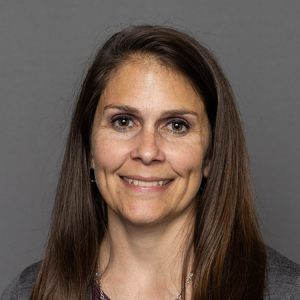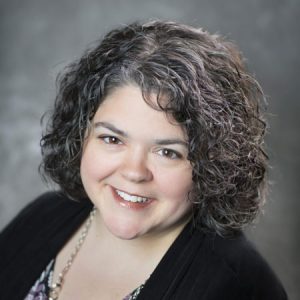Jan. 14, 2025
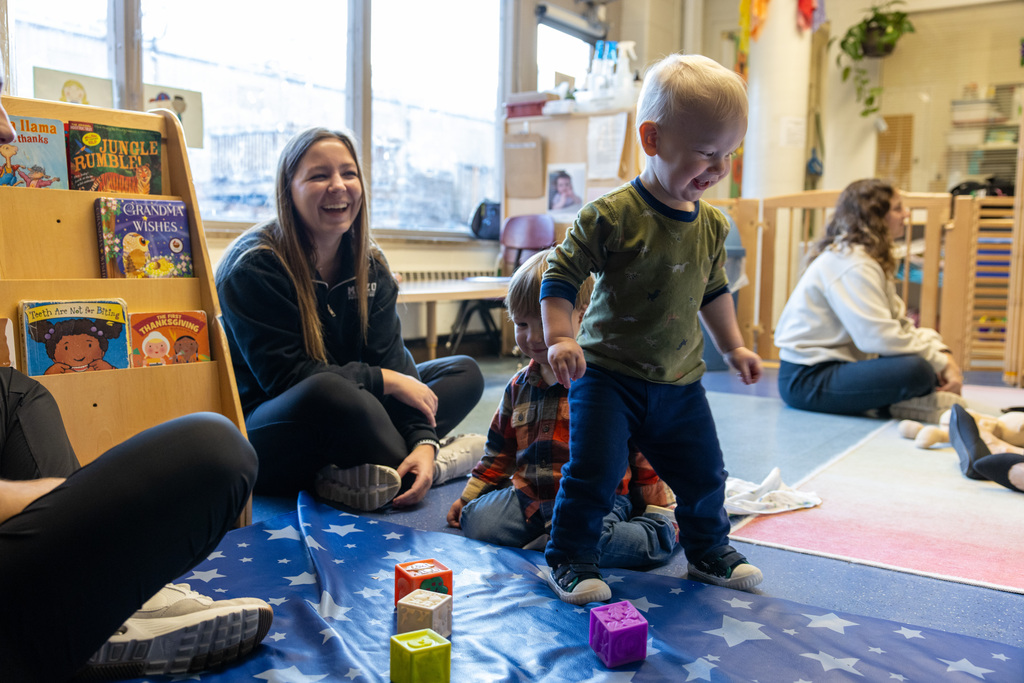
Story by Brian Consiglio, consigliob@missouri.edu
At the University of Missouri Child Development Lab (CDL), the Hokey Pokey isn’t all about having fun — it’s also a hands-on lesson in child development for Mizzou students.
The educational setting — which serves toddlers and preschoolers on Mizzou’s campus — is primarily affiliated with the Department of Human Development and Family Science in the Mizzou College of Education and Human Development. However, with Mizzou’s culture of interdisciplinary collaboration, it’s also a living, breathing lab for graduate-level students in the Mizzou College of Health Sciences to both learn and offer crucial pediatric services.
Through the Missouri Method, a philosophy of learning by doing, students studying physical therapy, occupational therapy, and speech, language and hearing sciences gain practical experience at the CDL.
Seeing typical childhood development at the CDL is helpful for the Mizzou graduate students in the College of Health Sciences, who also serve pediatric patients on campus at PhysZOU — Mizzou’s pro bono physical therapy clinic for the uninsured and underinsured — the Mizzou Speech and Hearing Clinic, and Tiger OT.
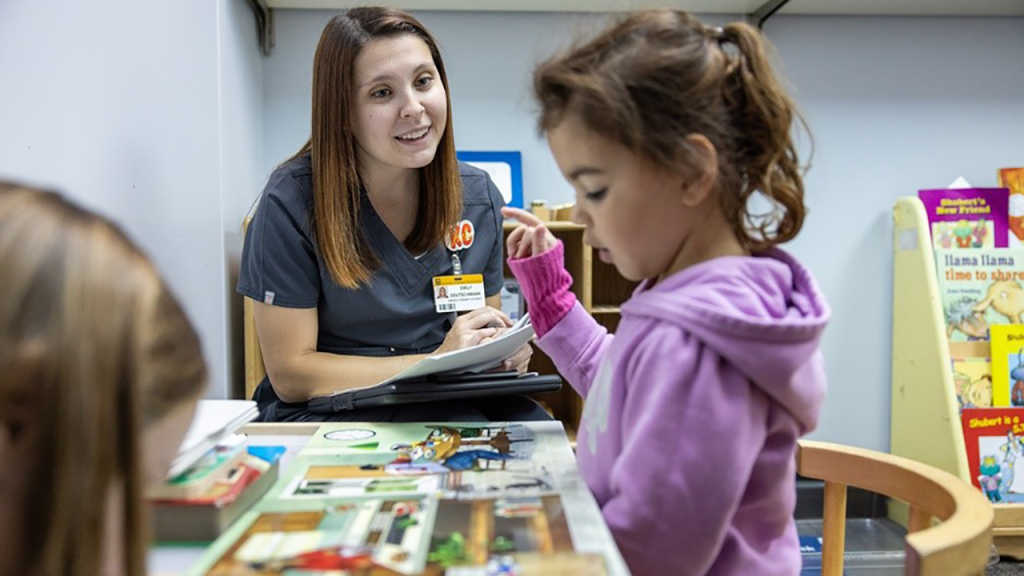
“By observing typical development in children, our students can get ideas for treatment when they are helping kids with developmental delays or diagnoses in PhysZOU,” said Kelly Stephens, a teaching professor in Mizzou’s College of Health Sciences who mentors physical therapy students at the CDL. “Not only do the students get the practical skills of monitoring things like balance, posture, core strength and motor skills, they also learn the soft skills of how to communicate with children.”
Jamie Poppen, a graduate-level physical therapy student who recently completed her rotation at the CDL, described the experience as deeply rewarding.
“It’s fulfilling to connect with children, offer encouragement and watch their progress,” Poppen said. “In a clinical setting, we often work with patients who have developmental delays. Observing how kids at the CDL typically move at different ages is a valuable visual reference. We read about it in textbooks, but to see it in action is very helpful. Mizzou definitely sets students up for success by providing these kinds of opportunities.”
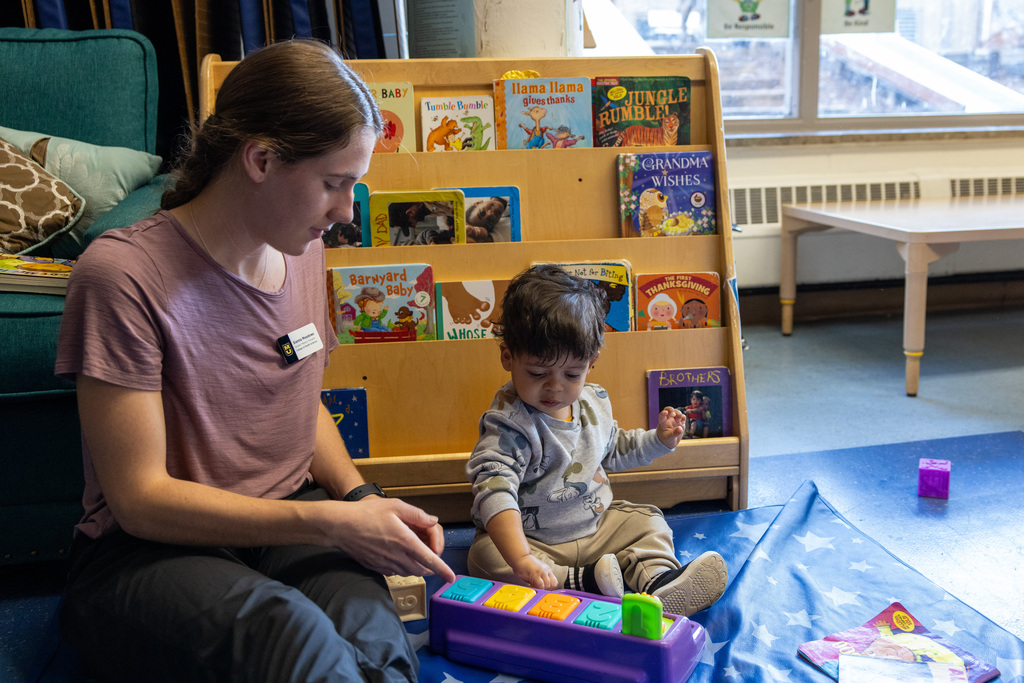
Leanna Lawrence, an associate clinical professor who mentors speech, language and hearing science graduate students, praised the collaboration for its mutual benefits. Mizzou students get experience conducting screenings that benefit local children.
“Some children might struggle to produce certain sounds, some might struggle to put their words and thoughts together to express their needs, and others have no difficulty at all,” Lawrence said. “Through this partnership, our students get the real-world experience they need while also helping identify children who might benefit from additional support and resources that we can refer them to.”
